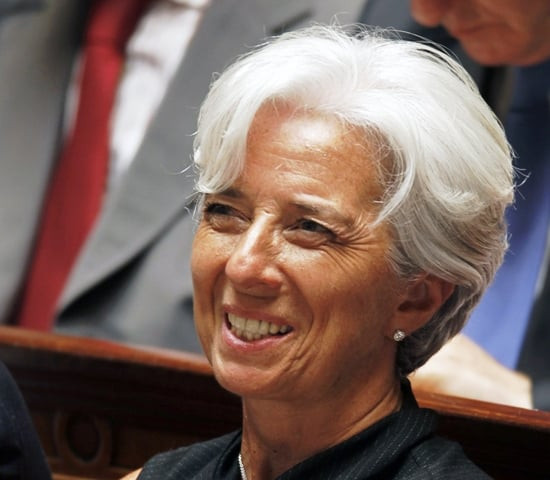Economic leaders fear policy paralysis
Govts need to to form a consensus before the situation becomes irretrievable.

Economic leaders fear policy paralysis
If politicians ignore their pleas - including a blunt call from International Monetary Fund chief Christine Lagarde to “act now” - the slowdown in world growth and debt turmoil in Europe could morph into a deeper crisis, top monetary officials and economists warned at an annual retreat here. “I hope they listen,” said Bank of Israel Governor Stanley Fischer.
Alarm over political deadlock was as obvious a backdrop to the annual meeting of policymakers in the wilds of Wyoming as the thunderstorms that rolled over the nearby Grand Teton peaks and dumped rain on the Jackson Lake Lodge.
“The governance right now is not going through a very brilliant moment, I have to say, neither in Europe nor in the United States,” Angel Gurria, who heads the multi-nation Organization for Economic Co-operation and Development, told Reuters.
In the United States, the political impasse has thwarted moves to tame massive budget deficits which brought the nation to the edge of a debt default and cost the United States its coveted AAA credit rating from Standard & Poor’s.
In Europe, leaders are fighting over who should pay for the sovereign debt crisis in the euro zone, which has a unified regime for monetary policy but whose member nations run their own budget policies.
Phone calls, speeches
Lagarde, whose appearance was a late addition and reflected her sense of urgency, delivered a hard-hitting pitch against braking spending too fast as nations struggle to rein in long-term budget deficits. She was far from alone.
The Fed has slashed US interest rates to near zero and bought $2.3 trillion in long-term securities in an effort to kick-start the recovery. With monetary policy stretched to its limits, fiscal policy is now key, Fed Chairman Ben Bernanke suggested.
“Although the issue of fiscal sustainability must urgently be addressed, fiscal policymakers should not as a consequence disregard the fragility of the current economic recovery,” he said on Friday.
“Fortunately the two goals of achieving fiscal sustainability - which is the result of responsible policies set in place for the longer term - and avoiding the creation of fiscal headwinds for the current recovery are not incompatible.”
Europe’s banks face scrutiny
In Europe, the biggest threat is a spreading sovereign debt crisis, and richer euro zone nations, chief among them Germany, have shown a hesitancy in picking up the tab for nations on the debt-strapped periphery.
Stress tests last month exposed the degree to which European banks are exposed to Greek and other shaky government debt, and lenders are balking at extending credit.
Lagarde and European Central Bank President Jean-Claude Trichet both said strengthening bank balance sheets is crucial.
“Although there is clarity on required policies, the uncertainty created by the political stances in both Europe and the United States poses some serious risks,” Cornell University Professor Eswar Prasad said.
“Getting the policy balance right is tricky in itself; this adds a layer of uncertainty that will make it that much harder,” Prasad said.
Published in The Express Tribune, August 29th, 2011.


















COMMENTS
Comments are moderated and generally will be posted if they are on-topic and not abusive.
For more information, please see our Comments FAQ